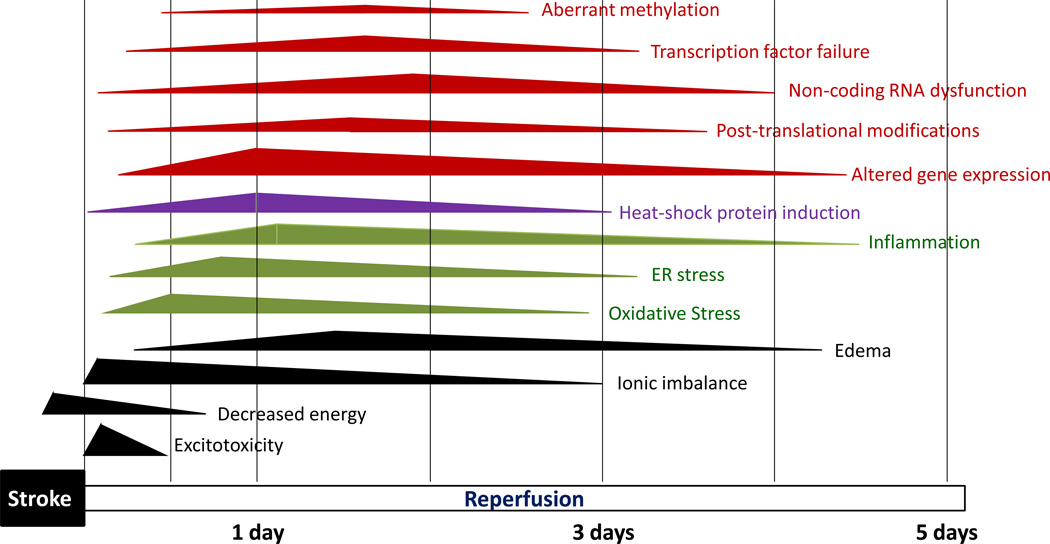Fig. 4.
Many pathophysiologic mechanisms synergistically contribute to neuronal death and neurologic dysfunction after stroke. Excitotoxicity, energy failure and ionic imbalance start within minutes after stroke and continue for days. Immediately after the insult, increased glutamate release combined with a failure of the glutamate transporters lead to elevated glutamate levels in the synaptic cleft, contributing to excitotoxic neuronal death. The energy failure leads to ionic imbalance that induces water to rush in leading to edema. Oxidative stress, ER stress and inflammation that start within hours after stroke are major events that lead to neuronal death if not controlled. A massive induction of HSPs in the post-ischemic brain might be an endogenous effort of self-protection. In addition, transcriptional and translational failure that encompasses altered expression of transcription factors, epigenetic changes like altered promoter methylation, post-translational modifications and altered ncRNA function also play a role in post-stroke pathophysiology.

